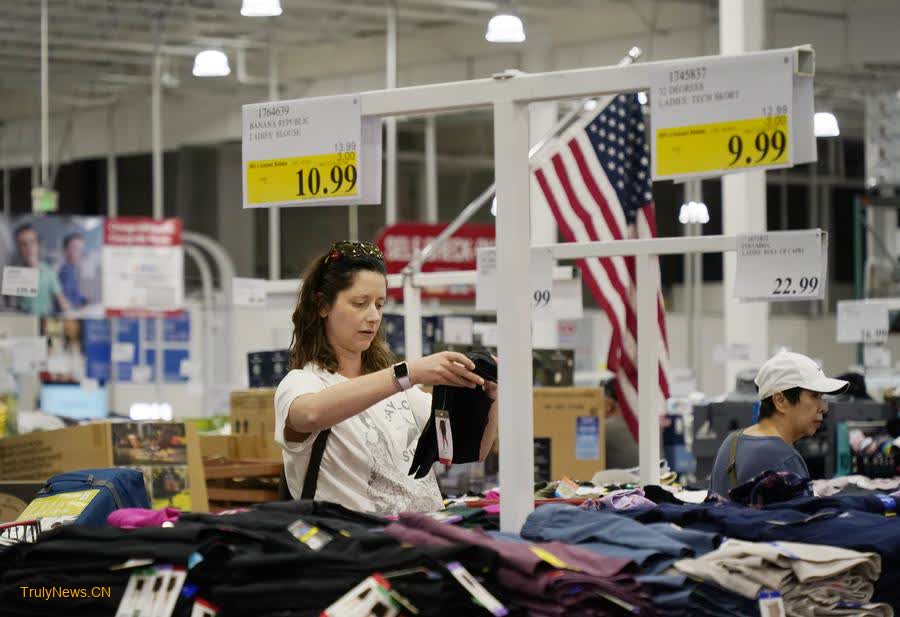
Customers select goods at a supermarket in Foster City, California, the United States, May 15, 2024. (Photo by Li Jianguo/Xinhua)
“Even though consumers remain relatively positive about the labor market, they still appear to be concerned about elevated prices and interest rates, and uncertainty about the future; things that may not improve until next year,” said Dana M. Peterson, The Conference Board’s chief economist.
NEW YORK, July 30 (Xinhua) — U.S. consumer confidence edged up in July, amid concerns about elevated prices and uncertainty about the future, according to a survey released on Tuesday.
The Conference Board, a business research group, said its consumer confidence index rose to 100.3 in July, up slightly from a downwardly revised reading of 97.8 in June.
The present situation index, a measure based on consumers’ assessment of current business and labor market conditions, slipped to 133.6 this month from 135.3 in June.
Meanwhile, the expectations index climbed to 78.2 in July. That’s up from 72.8 in June but still below 80. A reading under 80 can signal a potential recession in the near future.
Average 12-month inflation expectations remained stable at 5.4 percent in July, compared to a peak of 7.9 percent reported in 2022.
July’s figures showed that elevated prices, especially for food and groceries, and inflation remain the key drivers of U.S. consumers’ views of the economy.

A customer selects goods at a supermarket in Foster City, California, the United States, Feb. 28, 2024. (Photo by Li Jianguo/Xinhua)
The survey found that on a six-month moving average basis, the number of respondents who planned to purchase a home fell to a 12-year low.
Planned spending on services appeared weaker in July 2024 than a year ago, data showed. Consumers said they would reduce spending over the next six months on many discretionary items, including amusement parks and personal travel.
Many respondents said that they preferred purchasing less expensive services, such as streaming, to going to movies.
“Confidence increased in July, but not enough to break free of the narrow range that has prevailed over the past two years,” Dana M. Peterson, The Conference Board’s chief economist, said in a press release.
“Even though consumers remain relatively positive about the labor market, they still appear to be concerned about elevated prices and interest rates, and uncertainty about the future; things that may not improve until next year,” Peterson noted.